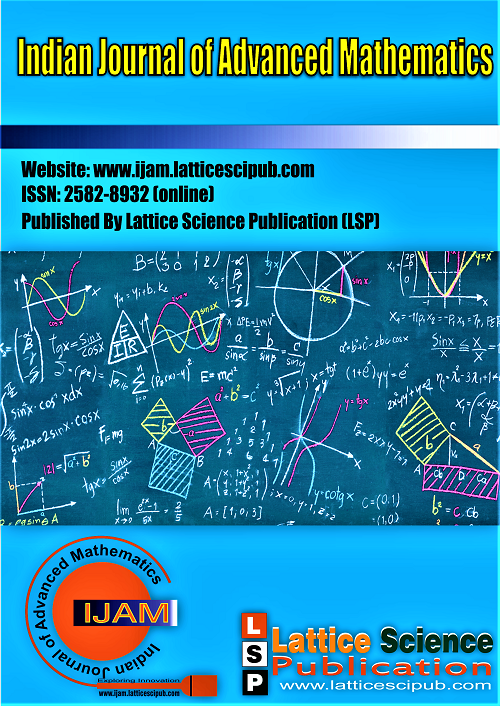Effectiveness of Oral Tests in Improving Learners’ Mathematical Performance
Main Article Content
Abstract
The main purpose of this paper is, the effect of guided oral questions in mathematics lessons on evaluation formative testing in Increase academic achievement. The sample of the Research consisted of two 23-person classes from computer students at the University of Dr. Moien Rasht. Both classes took pre-test, with a common question from the semester’s lessons. Randomly, Class A was selected as the control, and Class B was selected as the experiment .In Class A, after 6 weeks of teaching, evaluation formative the classical test was formally written (paper-and-pencil) .Group B students, with the same content of Class A teaching, received group Oral (participatory) instead of, formative tests. Group members were selected based on formula, According to the attention, pre-test scores value, and other Indicators. At the end of the semester, both classes were aggregated with the same question, and the scores of both classes were analyzed by descriptive and inferential statistics, t and ES .Statistical analysis showed that learning rate increased in both control and experimental groups. But in cumulative Evaluation, the mean scores of the experimental group were higher than the Average scores of the control group. While in the pre-test, the control group scores were higher than the experimental group. The area under the corresponding curve, ES = .96, is / 831. That is, the area under the curve corresponding to the test group members, on whom the developmental test was orally administered, their mathematics lesson scores were83.15 higher than the control group.
Downloads
Article Details

This work is licensed under a Creative Commons Attribution-NonCommercial-NoDerivatives 4.0 International License.
How to Cite
References
Cur linger, F. A. (1374). Fundamentals of Research in Behavioral Sciences, (Hassan Pasha Sharifi & Jafaranjafi Zand, Translators).
Pasha Sharifi. H, Kiamnesh. A, (1996) Methods of Evaluating Students' Learnings, Ministry of Education.
George polya.(2001). Math Creativity. Translated by Parviz. S. Sixth Edition. Tehran: Tatami Press.
Shabani . H. (1993) Educational Skills, Post Office.
Lotfabadi .H (1995) (Measurement and Measurement in Educational and Psychological Sciences), Hakim Ferdowsi Publications.
Alamolhodaei. S. H (2002) New Strategies in Mathematics Education, Method of Publication.
Seif, A. A. (2001) Educational Measurement and Evaluation Methods.
Jahanshahi. M. (2001). Principles of Learning, and Mathematics Education, High School, Pre-University. School publications.
Vaezfar. S.M..F, M A. S . &.N. M. (2014) Scientific Journal Management System, 2014. Volume 3 Number 2 Page 240-250.
Safavid.A (2005). Summary of methods and techniques of teaching contemporary publishing.
Hedayatpanah. S .A. (2014) How to teach the Sea of Knowledge Publications.
Keramati, M. R. (2005). Collaborative Learning, Motivational Publications - Ansar Publications.
Delavare. A. (2011) Probably Practical Statistics in Educational Psychology and Developmental Science.
Delavare.,A. (2005) Theoretical and Practical Principles of Research in Human and Social Science.
Newman, W. L (2010). Quantitative and qualitative approaches. (Hassan. D & Hossein. K, Translators). Publisher, the Gilded Book Institute (1) and (2). (Date of Issue Volume 2, 2015). (Published in Original Language, 2006).
Walpole, R..E (2010). Introduction to Probability and Applied Statistics. (Zahiboun & m B .G. Aria Nejad, Translators). University of Science and Technology. Eighteenth Edition (Published in Original Language, 2013).
Mc.Nab, David E. (2011). Quantitative and qualitative research methods in government management and non-profit organizations. (Reza. V& M. Sadegh .T, translators). Saffar Publications (Original language publication, 2008).
Gaul. M. W &,J .G (2005). Quantitative and Qualitative Research Methods in Educational Sciences and Psychology. (A. R. Nasr et al., Translators). Publications of Shahid Beheshti University and Jalal (1) and (2). (Date of Issue Volume 2, 2007) (Published in Original Language, 1979).
Cohen. L. Michelle .H. (2001). Statistics in Physical Education and Physical Education (A. Delaware, Translator). Allameh Tabataba'i University Press. (Published in Original Language, 2001).
Richard J. Shavelson. (2000). Statistical Reasoning in the Behavioral Sciences (A. Kiamenesh. Translator). Institute for Academic Jihad Publications (Published in Original Language, 2010).
David. A.& D.. W. (2015). Survey in Social Research. (H. Nayebi, Translator) Tehran, Ney, 12th Edition, p. 84 (Original Language Publication, 2014).
David, R, B& F. Design of Experiments and Statistical Methods. (Talebi& Mousavi, Translators). Post-Graduate Publications (Published in Original Language, 1995).
Chava .F& D .N (2011). Research Methods in Social Science (Larijani & Fazeli, Translators). Soroush Publications (Published in Original Language, 1976).
John .F (2012) Mathematical Statistics. (A. Amidi & M .Q Vahidi Asl, translators). University Publication Center. (Published in Original Language, 2005).
Levin. R, I, & David. S. R. (1387). Statistics for management. (Abbas Saleh and M.R Saadi, translators). Publisher: Etihad - New World. (Original language publication, 1998).
Quarterly Journal of Educational Psychology F 7th No. 22, Sina, Hamedan 27. Shivelson . R (1988) Richard. Statistical reasoning for the Behavioral Sciences. Translated br: A.R. Kiamanesh. Published in Allameh Tabataba'i University Press. 2015).





